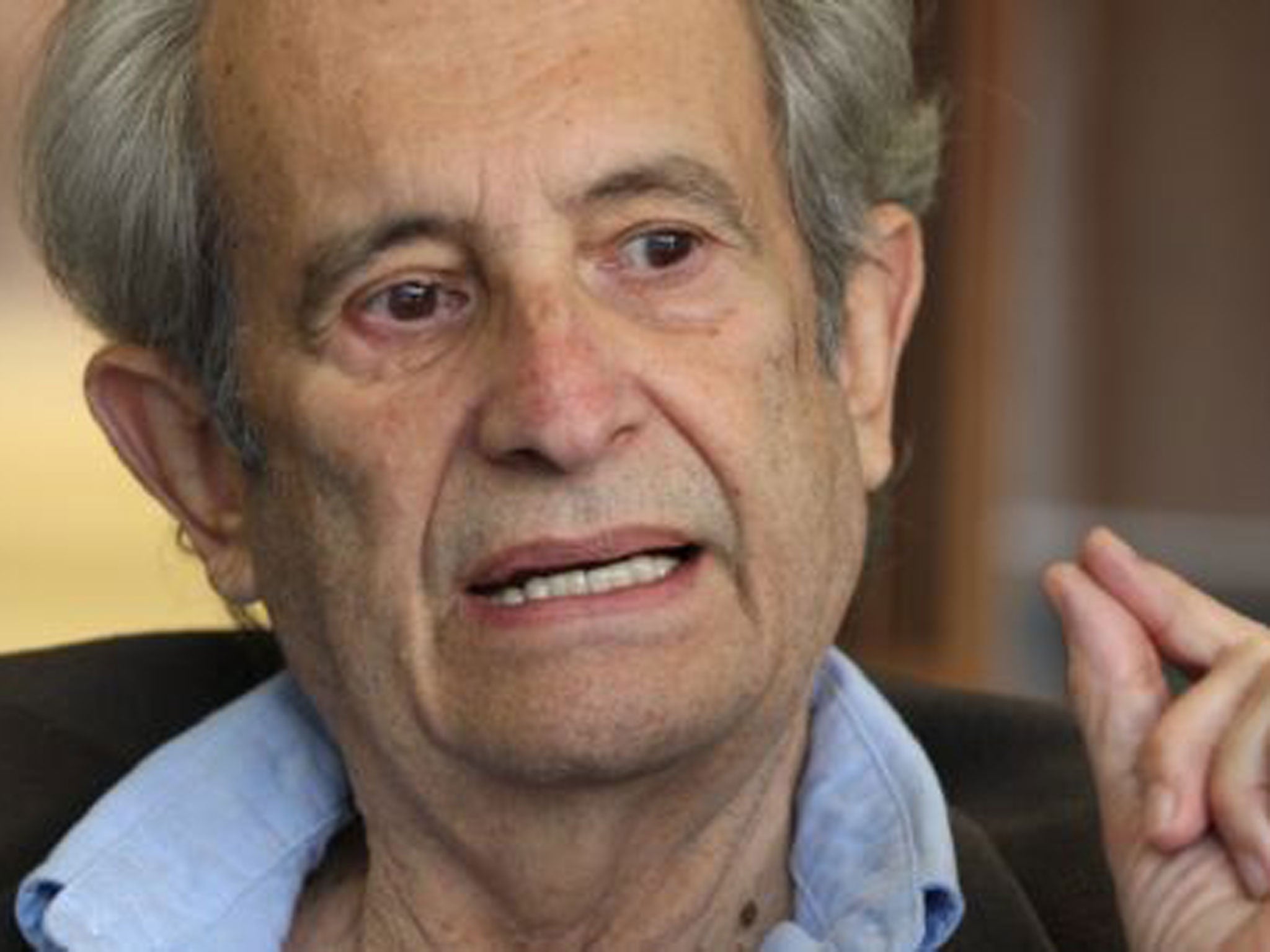Antonio Cubillo: Activist who fought for the independence of the Canary Islands
Years after he was attacked, courts confirmed that he was the victim of state terrorism

Antonio Cubillo was the founder and leader of the movement for the independence from Spain of the Canary Islands, the Atlantic Ocean archipelago much loved by tourists, 70 miles from Africa but 10 times as far from mainland Spain. A lawyer, he died of an aneurysm but had spent 34 years on crutches or in a wheelchair after being stabbed in the spine in 1978, during exile in Algiers, by two hitmen sent by the Spanish secret services.
Spanish courts years later confirmed that he was a victim of "state terrorism"; Cubillo had opposed Franco's military rule all his life. Sentenced to six months in prison in 1961 for demanding independence, he fled and founded his Canary Islands independence party in Algiers in 1964. When he died he was described in some Spanish newspapers as "the last grand figure of the Franco era" – a fact rather than a compliment.
Although Cubillo was largely considered little more than a thorn in the flesh, even a crank, by most mainland Spaniards, the armed wing of his group was blamed as the catalyst for the world's deadliest aircraft collision, the crash of two Jumbo jets on a Tenerife runway in 1977 which killed 583 people. The PanAm and KLM planes, and other international flights, had been diverted to the less-than-adequate Los Rodeos airport after a small bomb, planted by the armed wing of Cubillo's group, went off in a florist's at the bigger Las Palmas (Gando) airport on Gran Canaria. The phoned threat of a second bomb led to the closure of the Gran Canaria airport and the diversion of all flights to Los Rodeos, which was suddenly hit by thick fog. Cubillo always denied any direct responsibility and preferred to blame "fate".
When Cubillo set up his Movement for the Self-Determination and Independence of the Canarian Archipelago (MPAIAC), in Algiers in 1964, Franco was fiercely opposed to any independence groups. Cubillo called not only for Canary Islands' independence "from Spanish colonialism" but for political unity with the countries of North Africa. He also called on Madrid to give up its territories there – the enclaves Ceuta and Melilla, part of Spain to this day. "Africa begins at Gibraltar," he used to say.
The armed wing of his party, the Fuerzas Armadas Guanches [Guanche Armed Forces] was set up in 1976 and carried out 28 dozen small bomb attacks on Spanish territory – in total, one policeman died – before the backlash from the Los Rodeos disaster led to the group disbanding in 1978. It had been named after the Guanches, the Berbers who had sailed from Africa and settled on the Canary Islands several millennia ago. In the 15th century the islands were colonised by Spain, which found their prevalent winds handy as a starting line for the New World.
By the late 1970s Franco was dead, Spain was into its transition to democracy, Spaniards had come out of the darkness of dictatorship and, including those on the Canary Islands, mostly felt liberated. The islands were granted the status of an "autonomous community", which would later turn them into one of the outermost territories of the European Union. Antonio Cubillo became an anachronism and shut down the MPAIAC, although he continued to campaign peacefully for independence for the rest of his life. With the mediation of the new Socialist prime minister Felipe González, he was allowed to return from exile in the mid-1980s, with a royal pardon, and settled on Tenerife.
Antonio de León Cubillo Ferreira was born in 1930 in San Cristobal de La Laguna, on Tenerife, and received a law degree from that town's university. Hunted by Franco for his independence views, he chose the newly independent Algeria as his base and won support from Algerian leaders, firstly Ahmed Ben Bella and later Houari Boumedienne.
On 5 April 1978 two men, led by Juan Antonio Alfonso, attacked him at his home in Algiers. They told him they had planned to bomb his car but chickened out because his wife and children were in it. When he asked them not to shoot him, they stabbed him, crippling him. A few years ago, he and his potential assassin appeared together in a documentary. Alfonso said he had not been able to sleep out of guilt for that day. Cubillo forgave him.
At Cubillo's .quiet, family-led funeral, his coffin was covered in the independence flag – the official Canary Islands flag but with seven green stars added by Cubillo to represent the main islands of the archipelago. As he was buried, dozens of his supporters chanted, "The Canaries are not Spain! Viva the free Canary Islands! Viva Cubillo!" He is survived by his wife Maria Teresa, the French daughter of a Spanish Republican general forced into exile by Franco, and by their sons.
Antonio Cubillo Ferreira, lawyer and independence activist: born San Cristóbal de La Laguna, Tenerife 3 July 1930; married Maria Teresa (three sons); died Santa Cruz de Tenerife 10 December 2012.
Subscribe to Independent Premium to bookmark this article
Want to bookmark your favourite articles and stories to read or reference later? Start your Independent Premium subscription today.

Join our commenting forum
Join thought-provoking conversations, follow other Independent readers and see their replies